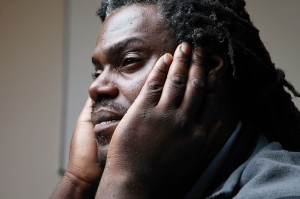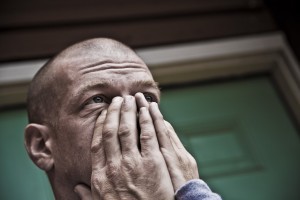
PTSD can be a particularly devastating mental health issue that can leave some sufferers reeling for years from the after effects of a traumatic experience.
It is widely acknowledged that those who serve in combat zones are likely to suffer from some form of mental stress.
Official statistics from the Ministry of Defence indicated up to 11,000 serving members of the Armed Forces have been diagnosed with mental conditions that include PTSD. Of the 2,550 military personnel diagnosed with mental health issues last year, 273 were reported to be suffering from PTSD.
According to PTSD UK, it is estimated up to 70% of those suffering with the condition in the UK receive no medical intervention at all.
If you suspect someone you know is suffering from the condition, it is critical they seek help and advice from a health care professional. There is still much to learn about the illness and technically, as yet there is no known ‘cure’. There are however a number of treatments that can successfully eliminate the crippling symptoms which can have a profoundly positive effect on recovery. They fall under the umbrella of psychotherapy and medication.
What is PTSD?
PTSD is a mental condition that can be triggered by one traumatic event or a series of smaller traumas over a prolonged period of time. It can cause serious emotional and physical reactions that often severely impact both the sufferer and those closest to them. Although there has been much talk in recent years about PTSD in the military community, this is not an illness that is limited to those involved in a war zone. It can occur as a result of many types of traumatic experiences in life, from the death of a loved one, a car accident, an abusive relationship, sexual assault or experiencing a natural disaster of some kind.
Symptoms of PTSD include…
- Physical reactions – such as headaches, migraines, tiredness, stomach pain, digestive issues or breathing problems.
- Persistent flashbacks and nightmares – can haunt the sufferer both day and night. Images of the event, the emotional fear and physical pain can be re-lived when asleep or fully conscious and can happen without warning. This can lead to sleep deprivation and extreme anxiety.
- Detachment – where the sufferer withdraws from the things they once loved so much. Perhaps they no longer take an interest in their favourite hobby or they start to avoid socialising with their closest friends.
- Self-destructive traits – they may start acting out of character by pushing the limits with dangerous pursuits or risky behaviour such as drugs or alcohol abuse. Their attitude towards food may alter or they start to self-harm. In the most serious of cases, there can be suicidal tendencies.
- Repressing memory – can often be a symptom of PTSD. The inability to remember events surrounding the trauma is common. Any recollections of the incident are locked away, any thoughts suppressed. Sometimes physical reminders are removed or destroyed and sufferers may seek distraction elsewhere, such as a compulsive attitude towards work.
- Panic attacks, mood swings and depression – can be caused by a persistent mental phobia that starts to dominate everyday life. The fear to go outside, or to avoid stepping over a certain object for instance can cause acute anxiety, which in turn can ultimately lead to isolation and depression.
- Avoidance strategies – often used to sidestep emotions, thoughts or conversations that have a link to the traumatic event itself. This can include places, people, objects or sounds.
- Emotional shock – can be another symptom. If you don’t feel, you can’t suffer the pain, or at least that’s the perception. Any emotional response is deadened. This can result in the sufferer noticeably withdrawing from friends and family and in some cases becoming completely isolated.
- Hyper sensitivity – can appear as being ‘nervy’, or ‘on-edge’. It becomes impossible to relax due to the overwhelming sense of fear and anxiety.
- Irritable, aggressive behaviour and angry outbursts – often linked to PTSD can be caused as a result of living constantly with a crippling mental phobia. Other symptoms include sleeplessness, lack of concentration and the inability to make an effective decision. As a result, personal relationships are put under a huge amount of strain.
- Guilt and self-blame – can weigh heavily on those who live with PTSD. Suffers sometimes relive the trauma, questioning how they could have done things differently. There can be an overwhelming sense of shame for those who blame themselves for the tragedy. This in turn can stop them from moving forward in life.
How to help?
Those suffering from PTSD can alter personality dramatically as a result of their illness. These changes can be difficult to live with. Sudden bursts of unexplained anger, irritability, or complete detachment can be hurtful and difficult to understand. It’s important to remember that it’s all part and parcel of the condition. Encouraging them to seek medical advice immediately is your number one task. Once this has been achieved, there are other things you can do to help them on their road to recovery:
- Educate yourself – take time to learn about PTSD so you can empathise with what they are going through and identify certain behavioural traits as part of the illness.
- Recognise the symptoms – withdrawal, both emotionally and physically is part of the disorder. It’s not a personal rejection. Give them space and make it clear that when they’re ready, you will be there for them.
- Attend medical appointments –if they are happy for you to do so. That way you’ll understand the recovery program and could offer support during the treatment.
- Be available to listen – if they need to talk. Equally, try to understand if they choose not to open up. It can take time.
- Encourage interaction with others – organise some fun events with their family and friends to help stave off the feeling of isolation.
- Recharge your batteries – caring for and worrying about someone else is exhausting. Make sure you don’t neglect your own health in the process. Get plenty of sleep and don’t lose sight of your own interests, friends and hobbies. It’s important to keep a sense of self.
- Don’t be afraid to ask for help – It’s incredibly difficult dealing with the fall out of PTSD. If you’re finding things emotionally hard, speak to your doctor.
If you would like more information relating to PTSD and how to find help, some useful links are below…


